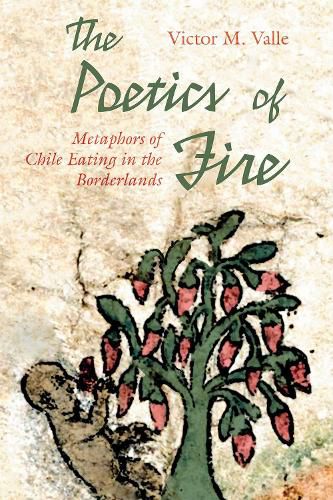Readings Newsletter
Become a Readings Member to make your shopping experience even easier.
Sign in or sign up for free!
You’re not far away from qualifying for FREE standard shipping within Australia
You’ve qualified for FREE standard shipping within Australia
The cart is loading…






In The Poetics of Fire, Pulitzer prize-winning journalist and Chicano author Victor M. Valle posits the chile as a metaphor for understanding the shared cultural histories of Chicanx and Latinx peoples from preconquest Mesoamerica to twentieth-century New Mexico. Valle uses the chile as a decolonizing lens through which to analyze preconquest Mesoamerican cosmology, early European exploration, and the forced conversion of Native peoples to Catholicism as well as European and Mesoamerican perspectives on food and place. Assembling a rich collection of source material, Valle highlights the fiery fruit's overarching importance as evidenced by the ubiquity of references to the plant over several centuries in literature, art, official documents, and more to offer a new eco-aesthetic reading--a reframing of culinary history from a pluralistic, non-Western perspective.
$9.00 standard shipping within Australia
FREE standard shipping within Australia for orders over $100.00
Express & International shipping calculated at checkout
In The Poetics of Fire, Pulitzer prize-winning journalist and Chicano author Victor M. Valle posits the chile as a metaphor for understanding the shared cultural histories of Chicanx and Latinx peoples from preconquest Mesoamerica to twentieth-century New Mexico. Valle uses the chile as a decolonizing lens through which to analyze preconquest Mesoamerican cosmology, early European exploration, and the forced conversion of Native peoples to Catholicism as well as European and Mesoamerican perspectives on food and place. Assembling a rich collection of source material, Valle highlights the fiery fruit's overarching importance as evidenced by the ubiquity of references to the plant over several centuries in literature, art, official documents, and more to offer a new eco-aesthetic reading--a reframing of culinary history from a pluralistic, non-Western perspective.